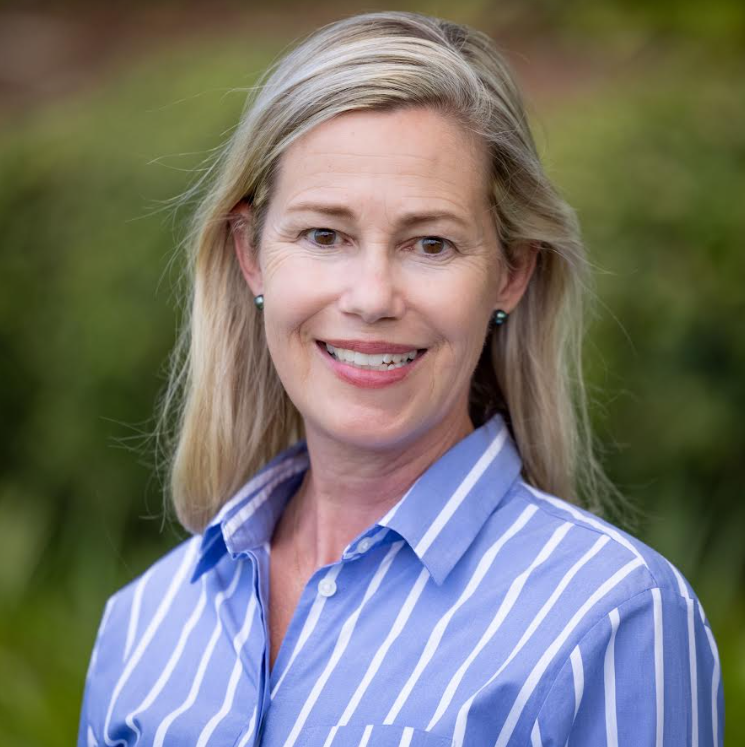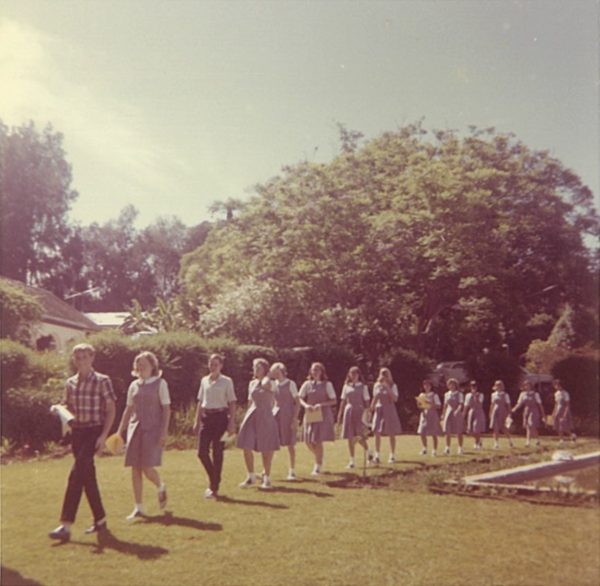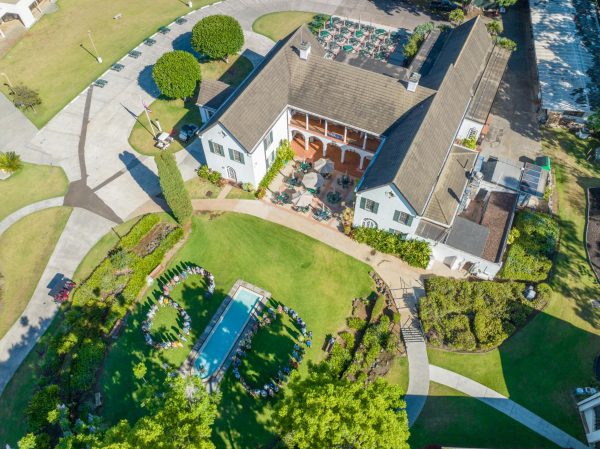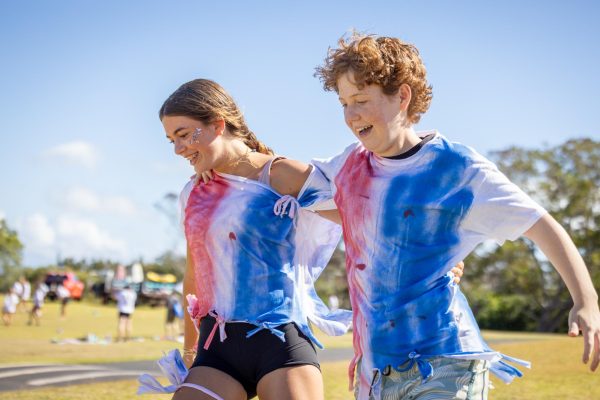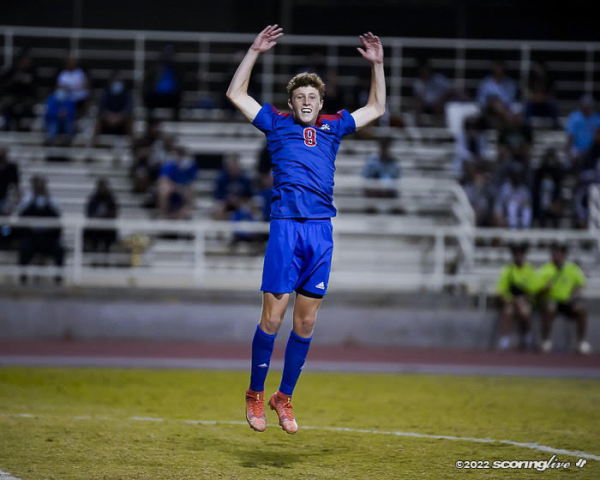Health and Wellness at Seabury Hall
I sat down with the new health and wellness teacher, Mrs. Ryden, to discuss the health of students and how we can apply healthy tactics to our lives in order to maximize our sleep and put our health first. In the COVID-19 pandemic, it has been crucial not only to focus on our physical health but our mental health as well. As we progress into summer, here are some things to keep in mind:
How long have you been teaching?
I’ve basically been involved in teaching in public schools, healthcare settings or private settings for almost 30 years. All in Canada prior to this year, where I grew up on the West Coast of Canada. We have family and have been coming back and forth from Hawai‘i for over twenty years. My husband is from Alaska so he’s an American. We have three children who are dual citizens and I’m the Canadian. I think we were really just drawn to the natural environment and the ocean. I have a daughter who graduated in 2020 and I have a son who’s a senior and a son who’s a freshman so I am the final, well fourth member, of our family.
Going back to why you’re here at Seabury, what made you choose health and wellness as a teaching career?
That’s such a great question. I guess I’ve always felt my most well when I was being active in nature, sleeping, spending time with family and friends, and fueling my body with healthy foods. It’s just always been a passion for me to learn and then teach in this field. I pursued a kinesiology degree when I started at University and I’ve just been involved in health and wellness in a myriad of ways since then. I’ve been a PE teacher in a school gym, teaching 200 kids a day, and then I’ve worked with the provincial health services authority which is sort of like the state department of health. I developed a health resource with a children’s hospital in British Columbia and then took that resource out around the Province. I think it’s just a passion for feeling well and wanting to share that with others.
Throughout your extensive teaching experience, and especially here at Seabury, have your students taught you anything?
Definitely. One of the things I love about teaching is that interaction and I feel like I learn something new from my students almost every day, just listening to their passions and interests. It’s students sharing what it’s like to be in a musical on stage because that’s not something I’ve ever done before.
I’m sure your students learn a lot from you as well, so I wanted to ask: What is one thing you are hoping to accomplish with this program at Seabury?
That’s a fantastic question. I would hope that students would… so many things! So many aspirations! I have high hopes. I would hope that students would know how to access information for their own health and wellness. I love team-teaching and working with my colleagues. There’s incredible colleagues on this campus, but I worked with Mrs. Quiocho recently to look at how to access health information from the databases in Seabury and the public library system and to look at peer reviewed, evidence-based journals so that it’s fact or science that students are looking for. I would hope for that. I would hope that they would maybe incorporate some of the wellness practices we talk about into their daily lives, whether it’s embracing sleep more or hydrating with water or moving vigorously or having compassion for themselves and kindness for themselves, practicing mindfulness. Maybe bringing some of those wellness practices into their lives and then also that they would know how to access that support when they head off to college, that they would know that there were resources and support out there for them. That would be some of the things I’m hoping to do.
To expand on the sleep aspect, I know a lot of students here struggle with a sleep-school-working-playing sports-extracurricular activities balance. Do you have any advice for the students or maybe the administration, how the students could get better sleep?
That’s a great question and, and I wish it wasn’t one we had to ask. We’ve spent quite a bit of time in our class learning from a few sleep experts, sleep scientists in the U.S., Dr. Matt Carter and Dr. Matt Walker and they have some great Ted talks out there where they take the neuroscience and sleep research that they do at a very high level, they both have their PhDs, and they translate it into more accessible information for us. Everything from the simple approach of when children are young we put them to bed, we read them books, we do lullabies, we dim the lights but then somewhere around middle school or high school when students get more involved in their independent activities, whether it’s music or dance or, they’re out later and we just sort of stop that? We stop supporting them to go to bed so maybe if students take the time to really take care of themselves as they’re going to bed and create a new bedtime routine for themselves.
Whether it’s going around the house and dimming the lights at 8 o’clock at night so that they start to begin to feel sleepy, whether they could choose to put away their phones an hour or so before they want to be actually asleep. I know that one of our seniors, Austin, did a whole research project on using sunlight clocks, so those could be really helpful so that you don’t use your phone as an alarm clock. Having the room be cool, our bodies need to be a few degrees cooler at night in order to sleep and Mr. Toda would say to really plan our days well in order to be able to have a good night’s sleep. If we make use of our days then we can actually give ourselves that option to go to sleep at night. Certainly, there is lots of dialogue around teenagers having a different circadian clock, and that’s science based, so there’s a lot of discussion that maybe could be had there in terms of starting school later. That would be something I would encourage student advocates and lobbyists to maybe speak with the administration about.
Before we closed I was wondering if there was anything you wanted to add, maybe a fun fact?
Let’s see. A fun fact about myself, I guess is, being from Canada I am definitely accustomed to the snow and I’ve really enjoyed winter-camping where you ski or snowshoe into the backcountry and then put up a tent in the snow. And I had an opportunity to teach Health and Wellness in the arctic and one of their main challenges for student health – high school student health – there is sleep because half the year it’s dark all the time and half the year there is no darkness at all. So at this time of year, we’re approaching May/late April, the sun is coming to the point where it’s not setting at night. They might be out shooting hoops with their friends in the driveway and not realize it’s actually 1:30 in the morning. So that was interesting. I love learning as well and then I guess the only other thing I would love to add is just how much I’ve appreciated the positive energy here on campus and from the students and faculty. There’s just so much positive, genuine aloha here. Not to mention the beauty of the campus, it’s incredible with the jacarandas blooming.
